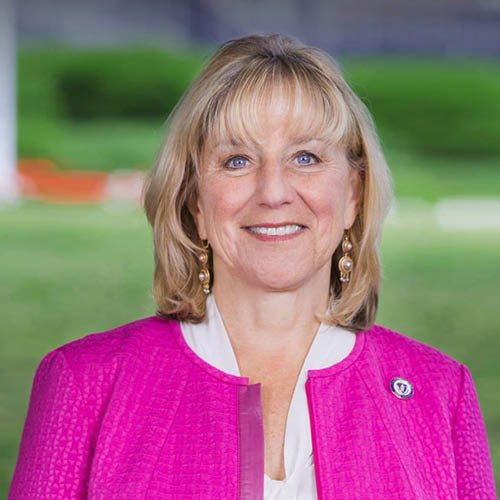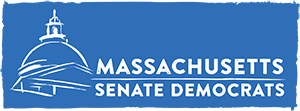Senate leader Karen Spilka voices support for extension of mail-in voting rules

Steph Solis | MassLive | June 29, 2021
Lawmakers, union leaders and labor analysts in Massachusetts face the gargantuan task of analyzing what the post-COVID economy and workforce look like — from the use of artificial intelligence to benefits for delivery drivers.
But experts speaking before the Future of Work Commission Monday honed in on one area that is quickly becoming a heated debate in the Bay State: the gig economy and the rights and benefits for its workers, particularly at app-based companies.
“We need a comprehensive approach that promotes job quality across the board, whether those jobs are arranged via a smartphone or not,” said Shelly Steward, director of the Future of Work Initiative at the Washington, D.C.-based Aspen Institute.
Steward said workers need better workplace protections, benefits and stability, in addition to the flexibility that some of the tech giants promote. But no one suggestion is a “silver bullet,” she said.
Companies such as Uber, Lyft, DoorDash and others who contract workers through their apps have backed some changes to increase benefits for existing workers, but fervently oppose any regulations or laws that would force them to make their drivers employees. If classified as employees, those drivers would be eligible for health insurance and other benefits.
Representatives of the companies often say the majority of their workers drive part-time. Turning those workers into full-fledged employees, they argue, would put them on the path to working full-time hours, preventing them from deciding their own schedules.
The 17-member commission is bound to confront contentious workplace-related trends. The last major shifts to the American workplace, and the protections and benefits that come with it, were born out of historic events such as the Industrial Revolution and the Great Depression, said Sen. Eric Lesser, who co-chairs the commission.
“The Great Depression triggered the need for Social Security, the need for unemployment insurance, the need for workman’s compensation insurance,” the Longmeadow Democrat said. “Now that we’ve made our way through another crisis, I think it’s exposing again what the gaps are in the 21st century.”
The gig economy, which encompasses everyone from contract nurses to ridesharing drivers, is one of those sectors in flux.
After the COVID-19 pandemic hit, hundreds of thousands of self-employed and contract workers in Massachusetts found their business ground to a halt. But they couldn’t get traditional unemployment payments because they weren’t employees. Nor did they have health insurance, paid time off or other benefits; only those with full-time jobs who were laid off or furloughed could get compensated.
Massachusetts launched a Pandemic Unemployment Assistance program for contract workers with help from the federal government. At its height, the PUA system had garnered 300,000 recipients who were unemployed or felt unsafe working during the pandemic.
About 150,000 people continue to receive PUA benefits, Secretary of Labor and Workforce Development Rosalin Acosta told lawmakers during Tuesday’s meeting.
Both the PUA payments and the extra $300 a week in unemployment benefits are set to end in September.
As states reopen, legislators and labor officials in several states are examining how COVID-19 has accelerated changes in remote work, sick leave, workplace culture and the gig economy.
Already, the fight between tech giants and unions over how delivery drivers and other contractors should be classified escalated during the pandemic. Uber, Lyft and a handful of other app-based companies spent more than $200 million to pass a California proposition in November that exempts them from classifying their drivers as employees, the Los Angeles Times reported.
In Massachusetts, Attorney General Maura Healey has weighed in on the issue. Healey sued Uber and Lyft in July, asking a judge to order that the companies classify their drivers as employees. In March, Suffolk Superior Court Judge Kenneth W. Salinger denied Uber and Lyft’s motion to dismiss the lawsuit.
A bill that would exempt the app-based companies from classifying their workers as employees is pending on Beacon Hill. Unlike Proposition 22 in California, H.1234 calls for creating a portable benefits account. The company could pay into a driver’s account, which a driver can use to cover health insurance costs or let it be transferred to a retirement account.
Steward of the Aspen Institute says it’s too narrow compared to other portable benefits accounts because it would only affect app-based companies. She said that might leave out workers who string together multiple kinds of gigs and part-time jobs to make a living.
“These are teachers, retail workers, janitors, any number of people who have any number of occupations, and then need additional income on top of that,” she said.
Workers who drive for a ride-hailing app one day and mop floors the next would benefit from a portable benefits account that counts hours worked across various jobs, rather than only hours worked for app-based companies, Steward said.
“Oftentimes their other jobs also don’t provide adequate or generous benefits, and so then they’re having multiple inadequate systems instead of one comprehensive system that can actually allow them to work a job or two jobs, if that’s their choice and maintain financial security,” she added.
Conor Yunits of the Massachusetts Coalition for Independent Work, which represents some app-based companies, said the bill is a starting point meant to offer benefits options for contract workers who want them.
“We view this bill as the start of a conversation,” he said. “Whatever happens, I’m sure, will be different from this.”
While debates about the gig economy have garnered national attention, Lesser notes it’s just one of several issues the commission needs to explore as the post-COVID economy starts to take shape.
“The stakes couldn’t be higher because we’re again in such a moment of profound change,” Lesser said. “The idea here is to get some of the leading minds from the state, people with deep experience and curiosity to get together … and hopefully begin to get our head around where the state is going a year from now, five years from now, 10 years from now.”
